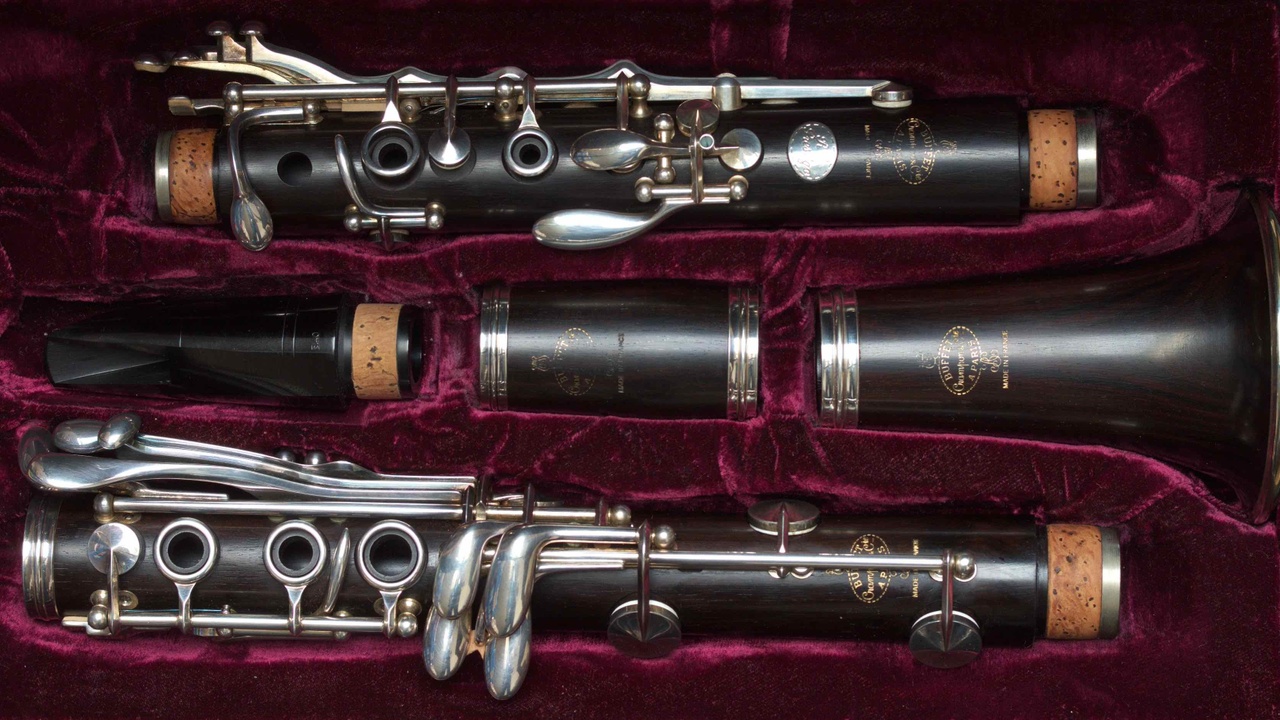How to Enjoy Practicing More Than You Currently Do

I have always loved to practice music. I have been obsessed with practicing from the moment Mrs. Pickens, my next-door neighbor, put an alto recorder in my hands. I was six years old.
It was the beginning of a lifelong passion. I had so much fun playing around with the instrument, figuring out the fingering, learning to navigate the register breaks, playing scales in different keys, and best of all, teaching myself to play songs I heard on the radio. I spent hours learning Simon & Garfunkel and Jim Croce songs by ear.
When my neighbor invited me to play in her [otherwise adult] recorder ensemble, I had to learn to read music. It was confusing and challenging, but it was also really fun. I enjoyed the problem-solving aspect of interpreting rhythm and pitch notation, and I really loved figuring out how the part I was playing fit into the overall musical design.
When I was eleven, I took up the clarinet and started playing in wind ensembles and orchestras. The clarinet opened up a whole world of repertoire, range, and stylistic possibilities, not to mention a new set of technical challenges. So many different things I could practice and improve on! On school nights, I couldn’t wait until my homework was finished so I could spend the rest of the evening studying and woodshedding.
In high school, I noticed that not all enthusiastic instrumentalists liked practicing as much as I did. Many did love to practice, but those who didn’t still practiced all the time because they loved rehearsing and performing, and that motivated them to improve their technical skill and woodshed their music.
I noticed that my friends who played in rock bands loved practicing and rehearsing even more than those of us who were studying classical music. I also noticed that the more fun these young musicians seemed to be having with their practice, the less seriously the “serious” musicians were likely to regard them. The unspoken message I received from many of my early classical peers and instructors (circa early 80s) was that music is supposed to be this lofty art form requiring sacrifice and discipline, in the service of expressing important ideas and feelings, not a shallow excuse to go make a lot of loud noise with your friends.
But I never got serious enough to stop having fun when I practiced.
 When I took up singing in my early 20s, it fed my love of musical practice even more than playing the clarinet had. Now I got to add language to the experience—poetry, storytelling, acting, not just in English but also in Italian, French and German! So many new things to learn, and so many new ways to express myself. I was once again like a kid in a candy store. I was a little frustrated, because it’s not possible for singers to put in hours and hours of practice the way instrumentalists often do, but when I wasn’t singing there was so much for me to study and learn about.
When I took up singing in my early 20s, it fed my love of musical practice even more than playing the clarinet had. Now I got to add language to the experience—poetry, storytelling, acting, not just in English but also in Italian, French and German! So many new things to learn, and so many new ways to express myself. I was once again like a kid in a candy store. I was a little frustrated, because it’s not possible for singers to put in hours and hours of practice the way instrumentalists often do, but when I wasn’t singing there was so much for me to study and learn about.
Given that most of you reading this are singers and/or voice teachers, you can probably guess where I am going with all this: I soon noticed that relatively few classical singers loved practicing as I did, in comparison with the instrumentalists I knew. I also noticed that in general, their practice habits differed greatly from what I had become accustomed to as an instrumentalist.
My clarinet regimen had consisted of warming up on long tones, then performing whatever scale and arpeggio exercises my teacher had assigned me, followed by a couple of études designed to improve specific skills, and finally the solo repertoire and orchestral excerpts I was preparing. There was a lot of structure to this regimen, and it provided me with daily feedback on my progress: I was aware that, for example, my three-octave staccato E major scale was improving because I was able to speed up the metronome a bit; my breath coordination was improving, because I could now easily make it through that challenging passage in the Brahms sonata on one breath; my dynamic skill was improving, because I could execute the long crescendo in my étude without my intonation suffering.
By contrast, my singer peers tended to practice by following along with the recording of their most recent voice lesson and performing their exercises more or less exactly the way they had performed them in the lesson. Then they would practice repertoire by singing through an entire piece and revisiting passages or notes they weren’t happy with, but without much strategy other than trying to make it sound better in accordance with the advice they had received from their teacher. When they talked about what they were working on in their lessons, they often framed things in terms of the “problems” they were trying to solve, not the technical skills they were trying to learn. And they often had little understanding of how their practice might solve those problems, while being plagued by doubts that they ever truly would.
So… this is not a fun way to practice.
It’s no fun to repeat an exercise over and over again when you aren’t all that clear about why you’re doing it, and whether it will eventually yield the desired results.
It’s no fun to practice a song or aria when some of the skills needed to perform it confidently and expressively are beyond your current ability, e.g. the ability to sing the climactic high note freely, or modulate your registration seamlessly, or execute the coloratura elegantly.
It’s no fun to show up for your lesson feeling like you didn’t do your homework adequately because, to the extent that you did practice during the previous week, it didn’t end up making the high note, the registration, or the coloratura measurably better.
If practicing isn’t fun, you will not be all that motivated to do it. Or you’ll grudgingly white-knuckle your way through, while telling yourself how all this sacrifice and discipline will someday hopefully lead to something more satisfying… all the while doing things that are not bringing you satisfaction. Thankfully, not all singers find practice to be tedious in the ways I described above. I know and admire many voice teachers who are as passionate as I am about helping our students develop satisfying, strategic practice habits. But if you aren’t currently enjoying your practice and want to learn to like (or even love) practicing, here are some recommendations.
Thankfully, not all singers find practice to be tedious in the ways I described above. I know and admire many voice teachers who are as passionate as I am about helping our students develop satisfying, strategic practice habits. But if you aren’t currently enjoying your practice and want to learn to like (or even love) practicing, here are some recommendations.
Stick to things you enjoy.
Tell stories and express feelings you enjoy expressing. Perform musical styles and repertoire that enable you to enjoy expressing them. Practice exercises you enjoy practicing. When something you’re working on feels prohibitively challenging, break it down into more manageable components, slow everything way down, and make a game out of it. If there’s something you don’t know how to do, seek help from someone who does know how.
Above all else, swear off making yourself to do things that make you feel uncomfortable. I’m not saying that you won’t encounter discomfort in your practice from time to time, just that it is cruel and counterproductive to make yourself to do anything. Compassionately negotiate your way through whatever it is, instead.
Accept (and celebrate) where you are right now.
If you’re like me, you may now be going “but, what about when I have to make myself do things that make me uncomfortable, because I have this important audition to prepare for, or this performance I committed to?”
The fact is, you can only do what you can do. In any given moment, you are the singer that you are. Learning a new skill, or improving an old one, takes as long as it takes. Making yourself do uncomfortable things is always cruel and counterproductive for your singing, because discomfort causes you to tighten up in ways that restrict your breathing and blunt your expressive impulses. Things will go better if you are able to accept this moment in your evolution, because it’s not as though resisting reality would get you anywhere you would want to go anyway.
Better still, celebrate where you are right now, this messy place where you can’t yet do the thing you want to, but are nevertheless full of hope that you will someday be able to. There is a word for this uncomfortable tension between where you are and where you want to go: Motivation. It’s the source of your power and creativity. So accept where you are right now, feel deeply the tension between where you are and where you want to go, and use that tension to launch yourself forward like a slingshot.
You’re always practicing something, so do your best to practice what you intend to.
I have a close friend whose personal mantra is, “Try not to be an asshole.” He understands that not being an asshole takes some practice. You know what I’m talking about.
You are always practicing something. When you are being kind to yourself, you are practicing generosity. When you are being cruel to yourself, you are practicing cruelty.
Performance is an act of generosity. You can only give to others what you are able to give to yourself first. So practice being generous with yourself. That means practicing music in a way that feeds your curiosity and creativity, and helps you to build confidence.
Practice music in a way that feels satisfying and empowering. Practice singing in a way that expresses your joy in singing, alongside the stories you tell and the emotions you evoke.
And in those moments you may feel your joy diminishing, remember why you love singing.
Then practice that remembering.
Woodshed it.
If you would like some specific ideas and strategies for how to make your practice regimen more enjoyable and effective, join me for a free webinar on the topic Saturday, April 23 at 3:00pm ET. Register here.


